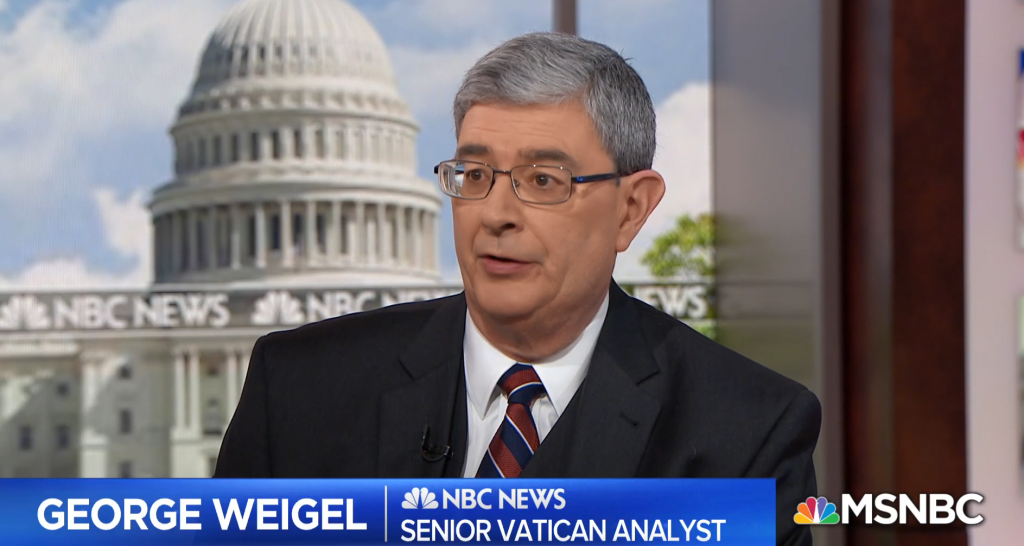
April 17, 2019 | MSNBC - Andrea Mitchell Reports
On April 16, 2019, EPPC Distinguished Senior Fellow George Weigel appeared on MSNBC’s Andrea Mitchell Reports to discuss the fire at Notre Dame Cathedral in Paris and the significance of the cathedral to France and to the world.
The portion featuring Mr. Weigel’s commentary begins at the 9:26 mark of the video below:
George Weigel Discusses Devastating Notre Dame Cathedral Fire on MSNBC from Ethics and Public Policy Center on Vimeo.
Partial transcript:
Andrea Mitchell: George Weigel, it was you who first mentioned this yesterday as Anne [Thompson] and our colleague Chris Jansing were involved in the live coverage, and we didn’t know whether Notre Dame would stand today: your thoughts about the significance of the art, the architecture, and, as Anne mentioned, the flying buttresses, all these innovations from the Medieval period on, which, as she said, lifts us up as we walk into these cathedrals.
George Weigel: Andrea, about midnight last night, I got an email from a friend in Paris, Jean-Luc Marion, a very distinguished philosopher and a member of the French Academy—therefore, one of the immortals of French culture—and it simply read, “We shall rebuild, and not just with stones.” I think what my friend meant is that France is being asked to contemplate, to ponder, the true roots of its civilization, which doesn’t just go back to the French Revolution. It goes back to those stories from the Old Testament, the Hebrew Bible, that were captured in glass and stone at Notre Dame. It goes back to the New Testament stories that will be relived by Christians this week. Those are the deeper roots of the entire civilization of the West, which is why all of us feel a profound sense of grief and loss here, even as we share the hope of our French friends that this magnificent testimony to faith, and to the power of faith to elicit beauty, will be rebuilt.
Mitchell: And even in our country, our very young country, as we replicate these Gothic cathedrals, in St. Patrick’s and here with the National Cathedral—I was in the National Cathedral on Sunday for the Mozart Requiem, for a performance, and every seat was taken. We were sitting there, and I looked up at the stained glass windows—obviously, they are imitative of the glories of Notre Dame, of what we see at the Vatican. But there is something about the artistic expression of those Gothic structures, as Anne was saying, that lift us up—the soaring nature of them, as compared to Romanesque structures, for instance, that just brings us closer to God, whether we feel it in a spiritual, religious, or a secular sense.
Weigel: When I was a boy, there was a book that we were often given to read in Catholic schools called The Thirteenth: Greatest of Centuries. It’s a debatable point, obviously, but the ability of that period of history to produce this architectural form and then to complete these buildings without steam engines, without electricity, and funded by ordinary people…if you go to the great cathedral of Chartres, for example, the glass windows include pictures of ordinary people whose faith-driven gifts—money, talent, work—helped raise up this extraordinary temple, which raises, as you say, everyone else’s spirit. There’s something quite unique about the Gothic, that, for example, the Kennedy Center, as magnificent as it is as a performance space, just doesn’t do as a building. So, I do hope that the restoration of this cathedral will keep that achievement in mind. It’s part of the living history of the Western world.











